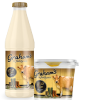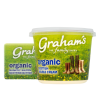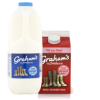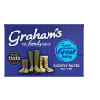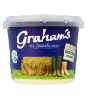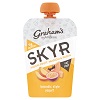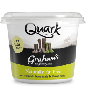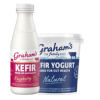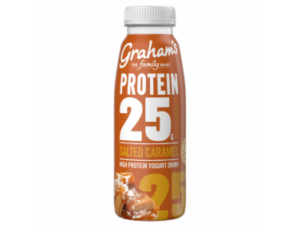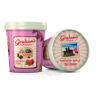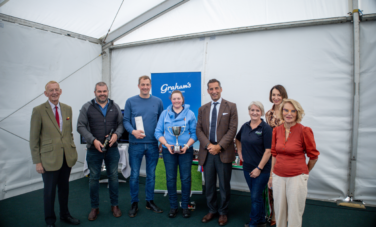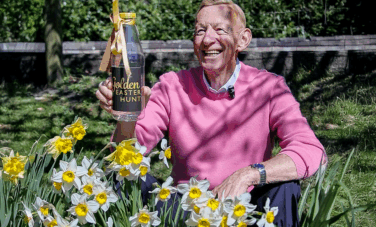
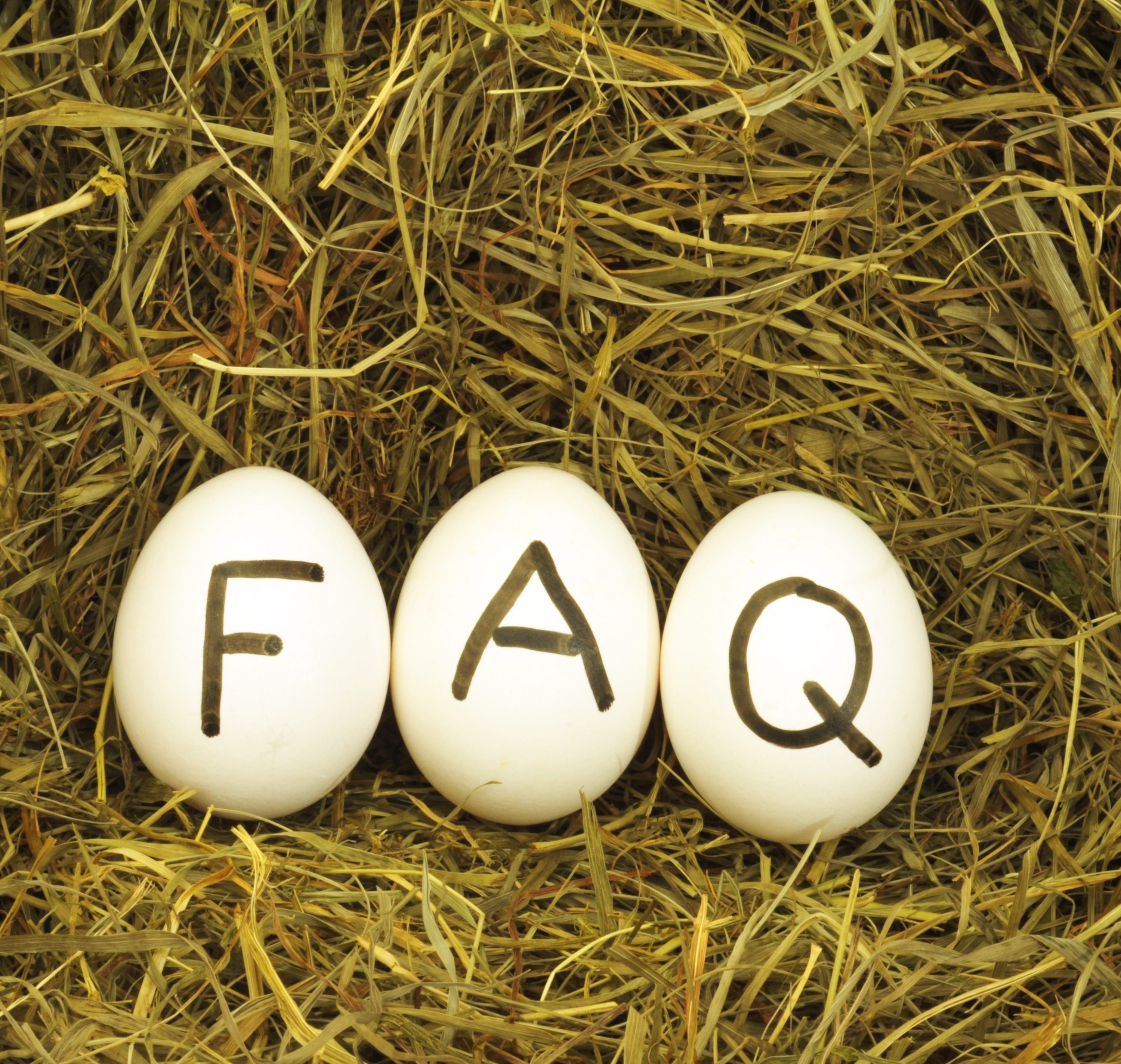
Our family
Q. Who are the Graham’s?
A. Grandpa Graham started the family dairy back in 1939 with 12 cows, all milked by hand and delivered door to door by pony and cart. The ponies knew the round backwards, always stopping at exactly the right house. 80 years and three generations of family later, fresh milk is still collected from 110 farmers daily across Scotland and lovingly bottled at our dairy in Bridge of Allan, which we still call home today!
From our family to yours. Lots more information can be found here.
Our products
Q. Is your packaging recyclable?
A. Building a happy, sustainable environment for our next generation is incredibly important to our family.
Actively working to make positive ecological changes across every area of our business, we particularly encourage everyone to reduce, reuse, recycle.
We always aim to ensure that our products are of excellent quality and that includes our packaging.
Recyclable packaging solutions are high on our priority list and ensure our customers that all our tubs and lids across our ranges are widely recyclable.
Did you know that between 75-80% of milk bottles are recycled? Making them UKs most recycled container. To recycle our milk bottles, all you need to do is rinse, keep the cap and label on and place in the recycle bin (plastics).
We still have some way to go, but so far we have made some big changes:
- All of our milk bottles are 100% recyclable
- We introduced glass milk bottle doorstep delivery across Scotland this year, for further information and to order click here
- Our bottles are HDPE which is recycled by 99% of all UK councils
- HDPE is recycled into toys, pipes and of course, more milk bottles
- The plastic in our milk caps have been reduced in weight by 13% this year
- Between 75-80% of all milk bottles are recycled
- We are undergoing a trial on machine pallet wrap, with the aim to reduce plastic usage by 50% annually
- 100% of all our recyclable cardboard waste is uplifted locally to be reused
- 15% of the bottle is made up from recycled plastic…and we are working on getting this even higher!

Q. Are your ingredients natural?
A. Yes. The quality of our ingredients really matters to our family, our yoghurts are all:
- Free from artificial colours, flavours and preservatives
- Suitable for vegetarians
- Food from animals fed on authorised GM crops is considered to be as safe as food from animals fed on non-GM crops. However, if you wish to avoid this then our organic milk is from cows that are never fed GMO feed
Our cows
Q. To what extent your cows are grass-fed/have access to pasture?
Many of our farmers run grass-based systems with the cows having access to grazing as weather conditions permit. However, due to the short growing season and wetter weather in some areas of Scotland, this is not possible for all of our farms and therefore our standard milk may contain milk from fully housed milking cows. These cows will have access to pasture at certain times of their life and be housed when they are milking. This is normal practice for the majority of milk processors but rest assured that these cows are cared for to the highest of standards.
The Gold range comes from our Jersey cows! Jersey cows are extremely good at turning grass into the beautiful rich milk that you enjoy and will spend the summer months grazing and the cold, wet winter months in farms sheds eating silage, hay, barley and wheat. Further information on the Grahams, their cows and our farmers can be found at www.grahamsfamilydairy.com/meet-the-grahams/our-farmers/
The Graham’s Organic milk and also Scottish Waitrose milk is also from cows that graze outside in the summer months with this being another option for you.
Q. What do your cows eat?
A. Feeding of cows depends on their stage of lactation as the cows should always maintain a safe weight – just like humans – neither too fat nor too thin. They need a nutritionally balanced constant diet to stay healthy. The majority of our dairy cows eat grass during the summer and silage (preserved grass or wholecrop) in the winter. This is usually supplemented with dry feeds such as cereals and protein feeds with added vitamins and minerals. Each dairy cow eats between 25 and 50 kg of feed per day and needs a constant and regular supply of fresh water to drink.
Organic dairy cows eat a 100% organic diet. At least 60% of their diet must consist of fodder, roughage or silage, with a maximum of 40% concentrates.
Q. Do you keep calves?
Weaning calves
Calves are weaned off milk no less than 8-12 weeks to ensure functional development. All farmers want to ensure the best start in life for their calves. Weaning is dictated by many factors but the main criterion is usually when the calf is eating about 1kg of concentrates per day and weighs about 60kgs. This is usually about 8 weeks of age.
Male calves
Most dairy herds breed some pure-bred dairy heifers each year. The use of artificial insemination allows farmers to breed from many different bulls according to the replacement policy of their herd.
On our farm we rear our own Jersey dairy heifer replacements and use sexed semen to ensure that the calf born is female. These calves will be reared on the farm with the others calves and then they will enter the milking herd at about 2 years old.
All of our cows are kept to the highest of standards and have access to the lush grass of Stirling that makes the delicious milk. During the winter months when the weather is poor the cows and calves are housed and are fed a diet of silage and grains.
Q. Is your milk A2 or A1
A. Our Organic Whole Milk is produced from mainly Holstein cows, research indicates that this breed produces a higher proportion of A1 protein than A2 protein. However, the A1 protein is much less prevalent in milk from Jersey Cows where, instead, there is a higher percentage of A2. Our Gold Top and Protein 22 milk comes from Jersey cows.
We don’t selectively breed for the A1/A2 proteins or carry out testing so we are unable to claim that our Gold milk is A2 but research has shown that the A2 protein predominates in Channel Island breeds. Further information on the Grahams, their cows and our farmers can be found at www.grahamsfamilydairy.com/meet-the-grahams/our-farmers/.
Q. What is your Organic Certification?
A. All of our supplying farmers are based on Scotland and are members of Omsco who meet the Organic standards, the details of which can be found here www.omsco.co.uk.
Organic dairy cows eat a 100% organic diet. At least 60% of their diet must consist of fodder, roughage or silage, with a maximum of 40% concentrates.
Q. Do your farmers comply to the Animal Welfare Council’s Five Freedoms?
A. Yes. Our dairy farmers are committed to keeping their cows happy and healthy and comply with the Farm Animal Welfare Council’s Five Freedoms:
1. Freedom from Hunger and Thirst: by ready access to fresh water and a diet to maintain full health and vigour.
2. Freedom from Discomfort: by providing an appropriate environment including shelter and a comfortable resting area.
3. Freedom from Pain, Injury or Disease: by prevention or rapid diagnosis and treatment.
4. Freedom to Express Normal Behaviour: by providing sufficient space, proper facilities and company of the animal’s own kind.
5. Freedom from Fear and Distress: by ensuring conditions and treatment which avoid mental suffering.

